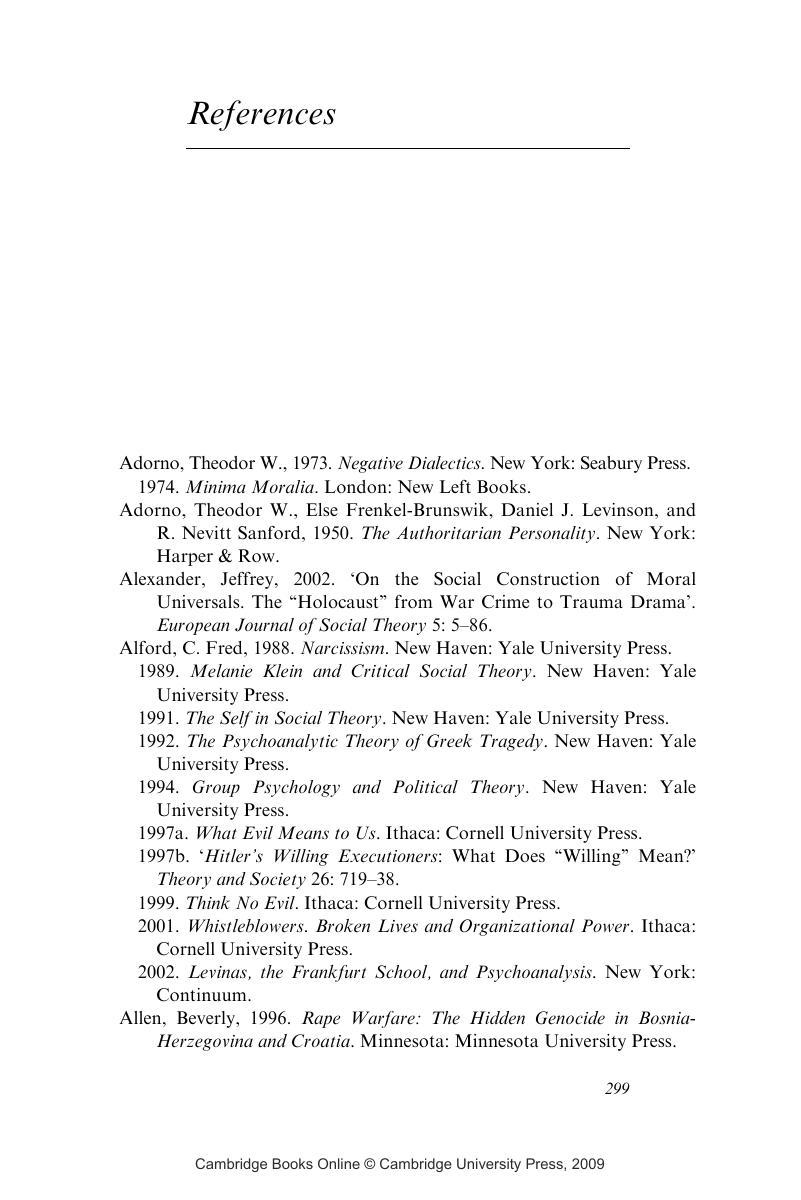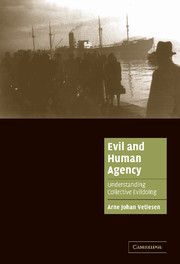Book contents
- Frontmatter
- Contents
- Preface
- A note on the cover image
- Introduction
- 1 The ordinariness of modern evildoers: a critique of Zygmunt Bauman's Modernity and the Holocaust
- 2 Hannah Arendt on conscience and the ‘banality’ of evil
- 3 The psycho-logic of wanting to hurt others: An assessment of C. Fred Alford's work on evil
- 4 The logic and practice of collective evil: ‘ethnic cleansing’ in Bosnia
- 5 Responses to collective evil
- 6 A political postscript: globalization and the discontents of the self
- References
- Index
- Evil and human agency
- References
References
Published online by Cambridge University Press: 10 December 2009
- Frontmatter
- Contents
- Preface
- A note on the cover image
- Introduction
- 1 The ordinariness of modern evildoers: a critique of Zygmunt Bauman's Modernity and the Holocaust
- 2 Hannah Arendt on conscience and the ‘banality’ of evil
- 3 The psycho-logic of wanting to hurt others: An assessment of C. Fred Alford's work on evil
- 4 The logic and practice of collective evil: ‘ethnic cleansing’ in Bosnia
- 5 Responses to collective evil
- 6 A political postscript: globalization and the discontents of the self
- References
- Index
- Evil and human agency
- References
Summary

- Type
- Chapter
- Information
- Evil and Human AgencyUnderstanding Collective Evildoing, pp. 299 - 309Publisher: Cambridge University PressPrint publication year: 2005

